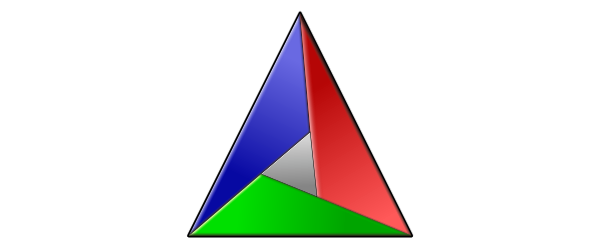I Hate CMake
CMake is the most popular tool for managing C++ projects of any scale—and for good reason. It’s powerful, flexible, and capable of handling almost any build requirement. If you think it’s missing a feature, you best guess is it already exists—you just haven’t found it yet. But to be honest, I’ve never liked CMake. Writing CMakeLists feels like mental torture, thanks to its many quirks and weird behaviors.

To make my life easier, I’ve started this series as a collection of notes on CMake’s behavior—both for my own reference and for anyone else struggling with it. In this post, I’ll dive into the different scopes in CMake and how they work.
Scopes in CMake
First things first—forget everything you know about scoping rules in programming languages like C/C++, Python, or Java. Just erase it from your mind for now. CMake’s scoping rules are nothing like them, and trying to apply traditional logic here will only lead to confusion.
1. Normal Variables (set(VAR value))
Scope in Current CMakeLists
- By default, variables defined with
set(VAR value)can be accessed in current CMakeLists after the line they are defined.
# Empty output. In CMake, accessing an undefined variable won't trigger any error
message(STATUS "${TEST_VAR}")
set(TEST_VAR "a")
message(STATUS "${TEST_VAR}") # Output: a
Scope in add_subdirectory()
- Variables from a parent directory are available in subdirectories.
- Subdirectories can override the variables, but these changes do NOT propagate back to the parent.
# root CMakeLists.txt
set(TEST_VAR "a")
add_subdirectory(subdir)
message(STATUS "parent var: ${TEST_VAR}") # Output: a
# subdir CMakeLists.txt
message(STATUS "subdir var before: ${TEST_VAR}") # Output: a
set(TEST_VAR "b") # Overrides in subdir scope
message(STATUS "subdir var after: ${TEST_VAR}") # Output: b
Behavior in Functions
- Functions create a new scope for variables.
- Variables set inside functions do not affect the caller’s scope unless explicitly marked
PARENT_SCOPE.
function(test_func)
set(TEST_VAR "b")
endfunction()
set(TEST_VAR "a")
test_func()
message(STATUS "TEST_VAR: ${TEST_VAR}") # Outputs: a
To modify the variable in parent scope, add Parent_scope:
function(test_func)
set(TEST_VAR "b" PARENT_SCOPE)
endfunction()
Behavior in Macros
- Macros do NOT introduce new scope.
- Variables modified in a macro affect the caller’s scope.
macro(test_macro)
set(TEST_VAR "b")
endmacro()
set(TEST_VAR "a")
test_macro()
message(STATUS "TEST_VAR: ${TEST_VAR}") # Outputs: b
2. Cache Variables (set(VAR value CACHE) or option )
Scope and Lifetime
- Like normal variables, they can only be accessed after the line they are defined during the first run of CMake.
- Once set, their values are stored in CMake’s build directory and can be accessed across any CMake runs unless explicitly deleted/overridden.
- Cache variables are defined in
{build_dir}/CMakeCache.txt. Delete it (or the entire build directory) if you need a completely clean build.
cmake_minimum_required(VERSION 3.14)
project("test-cmake" C CXX)
# Run this script for the first time: no output
# On subsequent runs, the output will be: a
message(STATUS "${TEST_VAR}")
set(TEST_VAR "a" CACHE STRING "a global variable")
- Modifying a cache variable requires
FORCE:
function(my_func)
set(MY_CACHE_VAR "New Value" CACHE STRING "Description" FORCE)
endfunction()
Behavior in add_subdirectory(), Functions and Macros
- Same as normal variables.
Behavior of Variables defined by option()
- Variables defined using
option(VAR "Description" DEFAULT_VALUE)behave almost the same as cache variables. - The type of variables defined using
optionwill always be Bool. - If the variable is already defined in the cache,
option()does NOT override it.
3. Environment Variables ($ENV{VAR})
Scope and Lifetime
- Environment variables are defined outside CMake but are accessible within CMake using
$ENV{VAR}. - Changes to environment variables in CMakeLists persist only for the current CMake process (NOT system-wide).
set(ENV{ENV_VAR} "test string")
message(STATUS "ENV_VAR: $ENV{ENV_VAR}")
Behavior in Subdirectories, Functions and Macros
- Same as normal variables.
4. Variables in ExternalProject_Add()
ExternalProject_Add()runs a completely separate CMake process, which implies that environment variables defined in parent CMakeLists won’t affect current external project.- Parent variables are not automatically passed to the external project, you must pass values explicitly using
-DVAR=value.
ExternalProject_Add(test_external_project
SOURCE_DIR ${CMAKE_SOURCE_DIR}/external_project_dir
CMAKE_ARGS -DTEST_VAR=${TEST_VAR_IN_CURREENT_SCOPE}
)
5. Functions and Macros
- Here we are talking about the scope of functions and macros themselves, not the variables defiend inside them.
- Functions and macros, once defined, are globally accessable.
# root CMAkeLists
cmake_minimum_required(VERSION 3.10)
project(FunctionScopeDemo)
add_subdirectory(subdir)
subdir_func() # output: hello world
# subdir CMakeLists
function(subdir_func)
message(STATUS "hello world")
endfunction()
- Unlike variables, attempting to call an undefined function or macro will result in error.
6. Nested Functions
Unlike languages with lexical scoping for nested functions, CMake defines inner functions globally—but only if the outer function runs. If the outer function never executes, the inner function doesn’t exist at all.
The same rule applies to macros as well.
function(outer_function) function(inner_function) message(STATUS "inner function runs") endfunction() message(STATUS "outer function runs") endfunction() outer_function() inner_function() # Output: # outer function runs # inner function runs # If `outer_function` is commented out, running this script will result in error.
Summary
| Variable Type | Global? | Visible in add_subdirectory()? | Affects Parent Scope when defined in functions? | Available in External Projects? | Persistent Across Runs? |
|---|---|---|---|---|---|
| Normal | No | Yes | No (unless PARENT_SCOPE is used) | No | No |
| Cache | Yes | Yes | No (unless FORCE is used) | No | Yes |
| Environment | Yes (for current CMake process) | Yes | No | No | No |
| Function/Macro | Yes | Yes | Yes (note #6) | No | No |
